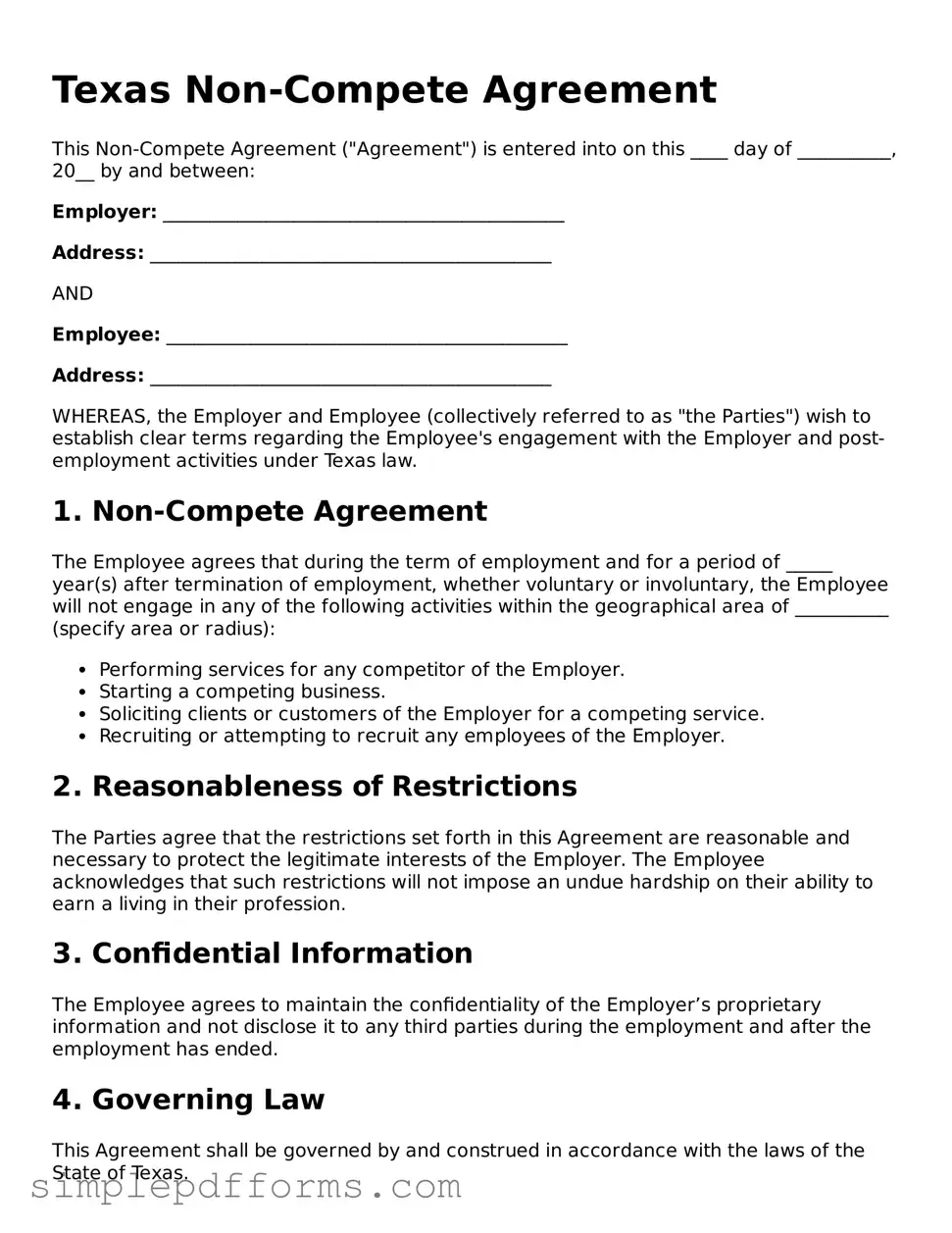Attorney-Verified Non-compete Agreement Document for Texas State
A Texas Non-compete Agreement is a legal document that restricts an employee's ability to work for competitors or start a similar business within a specified timeframe and geographic area after leaving their current employer. These agreements are designed to protect a company's trade secrets and business interests. Understanding the nuances of this form is essential for both employers and employees navigating the complexities of employment relationships in Texas.
Open Non-compete Agreement Editor Now

Attorney-Verified Non-compete Agreement Document for Texas State
Open Non-compete Agreement Editor Now

Open Non-compete Agreement Editor Now
or
Get Non-compete Agreement PDF Form
Your form is waiting for completion
Complete Non-compete Agreement online in minutes with ease.